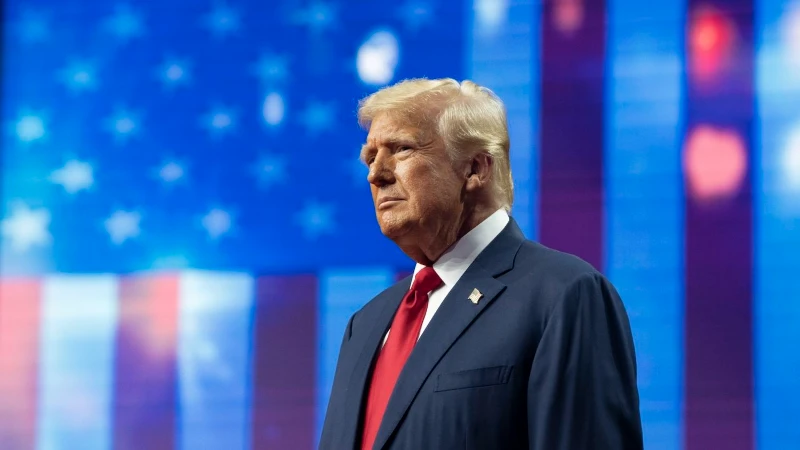Elon Musk's Power Play: A Threat to Democracy?
concerns mount over the legality and ethics of Musk's unprecedented control at USAID under Trump's administration
In a move that has sent shockwaves through the political landscape, Elon Musk's recent actions at the United States Agency for International Development (USAID) have raised significant concerns about power dynamics and governance under President Donald Trump's administration. With Trump back in office, Musk has been rapidly consolidating control over federal agencies, sparking fears of an unprecedented shift in how government functions.
Musk's consolidation of power within federal agencies is seen by many as a troubling development. His appointment as a special government employee allows him to bypass stringent ethical rules and financial disclosures typically required of public servants. This has led to questions about transparency and accountability in his role overseeing the so-called Department of Government Efficiency.
Reactions from Republican leaders have largely been supportive, viewing Musk’s initiatives as aligned with Trump's agenda to streamline government operations. "Elon can’t do and won’t do anything without our approval," Trump assured reporters, downplaying any potential conflicts of interest despite Musk's extensive business dealings with the federal government.
"Where we think there’s a conflict or there’s a problem, we won’t let him go near it, but he has some very good ideas," said Trump.
However, Democrats have condemned Musk’s actions as an unconstitutional power grab. Senator Chris Van Hollen voiced strong opposition: "We will do everything in our power in the Senate and the House to stop this outrage." The sentiment echoes across party lines among those who see this move as undermining democratic processes.
The shuttering of USAID is perhaps one of the most controversial aspects of Musk's directives. As one of the largest providers of humanitarian aid globally, its closure could severely impact efforts to combat hunger and disease worldwide. Critics argue that dismantling such crucial services reflects poorly on U.S. commitments abroad.
Internally, chaos reigns within federal agencies due to Musk's sweeping changes. Reports indicate employees being locked out from computer systems at USAID headquarters-a move that has left many scrambling for access to essential work tools and information necessary for their roles.
Experts have voiced significant concerns about the risks associated with Musk's unprecedented access to sensitive government systems, particularly the U.S. Treasury payment system. Richard Gregg, a former fiscal assistant secretary at the Treasury, emphasized that such access is unparalleled and potentially dangerous. "No one outside of the staff doing the work ever asked to have access to the payment files," he stated.
Lawmakers are also raising alarms about potential misuse or abuse of power in this situation. Senator Tammy Baldwin expressed her outrage over what she described as "the biggest data hack ever in the world." She called for immediate action from Treasury Secretary Scott Bessent to revoke Musk's access.
"We must halt this unlawful and dangerous power grab," said Senate Minority Leader Chuck Schumer on Capitol Hill.
Legal challenges are already being mounted against these changes by unions and advocacy groups concerned about public welfare programs. A group representing retirees and union workers has filed a lawsuit against Bessent and the Treasury Department to stop sharing personal and financial information with Musk's team.
The shift in control has sparked fears about future governance, accountability, and public trust in federal institutions. Critics argue that allowing private individuals like Musk such influence could set a dangerous precedent for how government operations are managed.
"This illegal, unconstitutional interference with congressional power is threatening lives all over the world," Congressman Jamie Raskin declared at a press conference condemning Musk's actions.
However, supporters of these changes argue that they represent necessary steps toward improving efficiency within federal agencies. They claim that Musk's business acumen could lead to cost savings and streamlined operations across various departments.
Musk himself has defended his actions as essential for cutting wasteful spending and addressing inefficiencies within government systems. He argues that his approach will ultimately benefit taxpayers by reducing unnecessary expenditures.
Despite these justifications, many remain skeptical of Musk’s intentions, questioning whether his motives align more closely with personal gain than public service. The debate continues as both sides weigh potential benefits against significant risks involved.
The broader implications of this event extend beyond immediate concerns about governance under Trump’s administration; they raise questions about democracy itself-how it functions when private interests intersect so directly with public policy decisions.
As this situation unfolds, it may serve as a critical case study for future administrations on balancing innovation with oversight while maintaining transparency in governmental processes.
